لَعَلَّ اللَّهَ يُحْدِثُ بَعْدَ ذَٰلِكَ أَمْرًا : Behold! Perhaps Allah Will Bring Forth Something Better for You
لَا تَدْرِي لَعَلَّ اللَّهَ يُحْدِثُ بَعْدَ ذَٰلِكَ أَمْرًا
(You do not know –Allah may bring about a new situation later..)
[Surah At-Talaq 65:1]
Life often places us at crossroads of uncertainty — decisions are made, events unfold, and we assume the outcomes are final. Yet, Allah’s wisdom transcends our perception, and in His infinite mercy, He can bring about a change, a relief, or a blessing from places we never imagined. The verse “You do not know — perhaps Allah will bring about, after that, a new matter” is a divine reminder to never lose hope, even in the darkest moments. It calls us to remain optimistic, trust in Allah’s plan, and believe that with every difficulty, He may unfold a path to ease, healing, or reconciliation — a new matter filled with unexpected good.
This reflection inspires us to hold onto hope, especially when all seems lost, for Allah is never restricted by our current circumstances.
Background
This verse comes in the context of Surah At-Talaq, also known as Surah An-Nisaa’ al-Qusra (The Short Surah of Women), which deals with rulings related to divorce, a moment of intense emotional turmoil, finality, and uncertainty. Allah gives precise instructions on how to manage divorce with justice and fairness. In the midst of these rulings, this verse stands out as a ray of divine hope and wisdom.
When a husband is divorcing his wife, he is instructed to observe the waiting period (‘iddah). During this time, Allah reminds both parties not to rush into final separation, because something may change, and Allah might bring about reconciliation, mercy, or a new opening. This verse is a call to reflect, to be cautious, and most importantly, to have hope in divine intervention.
Ibn Kathir (رحمه الله) notes that this verse emphasises delaying irrevocable decisions, because perhaps Allah will bring reconciliation, or bring forth something better for both parties.
But beyond the specific context of divorce, this verse has been a powerful source of comfort for believers. Its general meaning applies to any situation of uncertainty, distress, or apparent loss — reminding us that Allah is the Master of all affairs, and His plan can unfold in ways beyond our imagination.
No one knows what the future holds, and our limited understanding can lead us to despair when faced with hardship or loss. Yet, this verse anchors the believer’s heart in optimism, teaching us that behind every trial, there may be a hidden mercy waiting to unfold. It inspires us to pause, to reflect, and to consider that the current difficulty may just be a precursor to an unexpected blessing.
In life, we may face moments where we feel compelled to walk away—from people, places, situations, or habits. Some separations are necessary for our spiritual growth, while others are decisions made under pressure, and may later be regretted. This verse encourages deliberation and trust, for the next moment might bring healing, reconciliation, or an unforeseen shift.
Let this verse shape our mindset in every hardship: don’t rush to despair, don’t seal your fate in haste—perhaps Allah is preparing something better, just around the corner.
This divine call to hope and optimism—"You do not know; perhaps Allah will bring about a different matter after that"—is not isolated in the Qur’an. It belongs to a broader Qur’anic theme that teaches us to see beyond the apparent, to trust in the Divine plan, even when it contrasts with our immediate desires or fears.
What We Like May Not Always Be Good for Us
Imam Ibn al-Qayyim رحمه الله reflected deeply on this theme, highlighting two powerful examples where what we love may be harmful, and what we dislike may bring immense good. He referenced Allah’s words:
"Fighting has been enjoined upon you while it is hateful to you, but perhaps you hate a thing and it is good for you; and perhaps you love a thing and it is bad for you. Allah knows while you know not." (Surah Al-Baqarah 2:216)
And:
"And if you dislike them [your wives], it may be that you dislike a thing and Allah puts in it much good." (Surah An-Nisa 4:19)
Ibn al-Qayyim explained that the first verse deals with jihad, representing the peak of our power of anger and fear, and the second with marriage, which relates to our desires and attachments. A person may fear conflict, preferring peace, yet facing hardship in Allah’s path could be a source of great honour and reward. Likewise, someone might dislike certain qualities in a spouse, yet that very relationship could be a vessel of abundant good, unknown to the person.
Both verses, like our central reflection—“Perhaps Allah will bring about a different matter”—teach us that our judgments are limited. We often react based on temporary emotions, failing to see Allah’s wisdom unfolding in ways we cannot predict. Faith requires patience, and hope in Allah’s mercy requires trust—knowing that He knows, and we do not.
In the Prophetic example, we find a luminous story from the life of Umm Salamah رضي الله عنها. When her husband Abu Salamah passed away, she was grief-stricken. She recalled the Prophet ﷺ teaching:
"No Muslim is afflicted with a calamity and says what Allah has commanded—‘Indeed, to Allah we belong and to Him we shall return. O Allah, reward me for my affliction and replace it for me with better’—except that Allah will compensate him with better."
(Reported by Muslim)
With a heart full of love for Abu Salamah, she thought: “Who could be better than him?” He was among the first to migrate with the Prophet ﷺ! Yet, she submitted to the command and uttered the supplication, and what happened? Allah gave her a husband better than what she imagined—none other than the Messenger of Allah ﷺ himself!
This is Divine compensation beyond expectations. It teaches us that when one door closes, it is only that Allah is preparing something better—often far beyond what we can dream. But we must respond with patience, with hope, and with the conviction that “perhaps Allah will bring about after that a different matter.”
Never despair in waiting, for the delay of what you love may be the reason you receive something far greater.
Divine Promise in Times of Hardship
The verse “فَإِنَّ مَعَ الْعُسْرِ يُسْرًا ﴿٥﴾ إِنَّ مَعَ الْعُسْرِ يُسْرًا ﴿٦﴾” (Surah al-Sharh: 5–6) supplement this optimistic thought with a divine reassurance and promise from Allah ﷻ, that with every difficulty comes ease. Ibn Kathīr رحمه الله notes that Allah emphasised this truth twice, affirming that no hardship is ever isolated from relief, and no struggle exists without an opening.
The Prophet ﷺ illustrated this beautifully:
“If hardship were to enter into a hole, ease would follow it until it enters upon it and drives it out.” (Narrated by Anas, recorded by Ibn Abī Ḥātim)
This profound imagery captures how ease will always chase hardship, overpower it, and provide an exit for the believer.
The linguistic beauty in the verse is also noteworthy. The word ‘al-‘usr’ (the hardship) appears with the definite article (al-), while ‘yusr’ (ease) is indefinite. Scholars, including al-Ḥasan al-Baṣrī, explained that the same hardship (al-‘usr) is mentioned twice, but each mention of ease is different, implying two distinct eases accompanying one hardship.
Hence, as the Prophet ﷺ declared:
“One hardship will never overcome two eases.” (Narrated by al-Ḥasan, from the Prophet ﷺ)
Moreover, Ibn Kathīr cited a hadith from Abū Hurayrah where the Prophet ﷺ said:
“Support (ma‘ūnah) descends according to need, and patience descends according to the magnitude of the trial.” (Recorded by al-Ḥasan ibn Sufyān)
In essence, the more the trial, the greater the aid and patience Allah bestows upon His servant.
Imām al-Shāfi‘ī رحمه الله, known for his perseverance in hardship, reflected this optimism in his verse:
Patience, with beauty, how near is the relief!
Whoever watches Allah in all affairs shall find escape.
Whoever is truthful with Allah shall not be harmed,
And whoever hopes in Him will be exactly where he hopes.
So in every crossroad, trial, or difficult choice—carry this verse in your heart,
لَا تَدْرِى لَعَلَّ اللَّهَ يُحْدِثُ بَعْدَ ذَلِكَ أَمْرًا:
Who knows, Perhaps Allah will bring about a new situation…
Let it remind you that the unseen holds endless possibilities by the will of Allah, the Most Merciful, the Best of Planners.
Disclaimer
The views expressed in this article are the author’s own and do not necessarily mirror Islamonweb’s editorial stance.

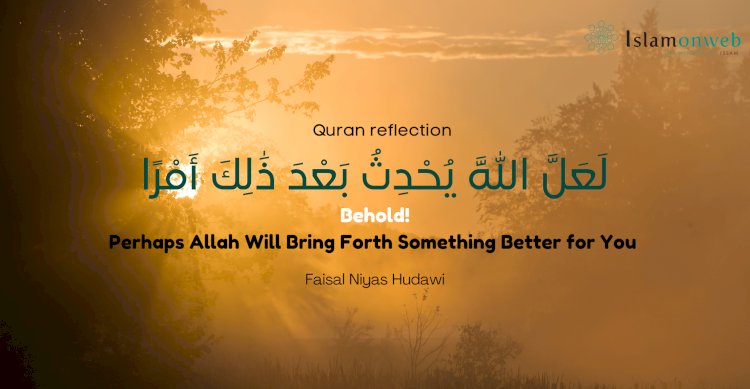


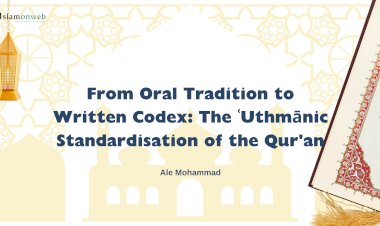
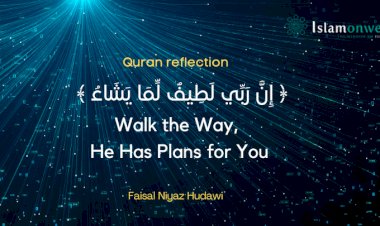
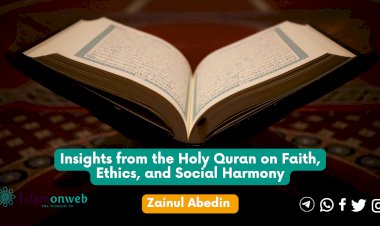
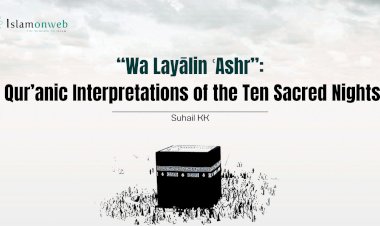
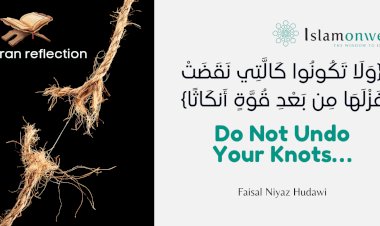















Leave A Comment